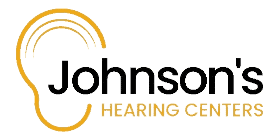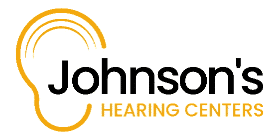Living with hearing loss can present challenges, especially with communication. However, with the right strategies and support, you can communicate confidently and effectively. Informing others about your condition helps them understand your needs and make necessary adjustments. For instance, you can request that others speak more clearly or face you while talking. This openness facilitates better communication and promotes understanding and patience among your peers.
Use Assistive Listening Devices
Hearing aids and other assistive listening devices enhance your hearing, making communication and conversations more exciting. Hearing aids can amplify sounds and reduce background noise, making it easier to focus on the speaker. Other devices, such as loop systems, can be particularly useful in noisy environments or large gatherings. Additionally, having a regular hearing health exam ensures that your devices are properly adjusted to your hearing needs.
Practice Active Listening
Active listening involves paying close attention to the speaker and using visual signs to aid understanding. Maintain eye contact and watch the speaker’s facial expressions and body language for additional context. Nod in agreement or provide verbal feedback to show that you are engaged in the conversation. Practicing active listening helps you comprehend better and makes the speaker feel heard and appreciated.
Choose the Right Environment
Whenever possible, choose quiet, well-lit spaces for conversations. Background noise can be a significant barrier, so find settings where you can hear more clearly. If you’re in a restaurant, request a table away from the kitchen or other noisy areas. Good lighting is essential for reading lips and observing facial expressions, so favor well-lit rooms for discussions.
Communicate Your Needs Clearly
If you need someone to speak louder or slower, kindly let them know. For instance, you might say, “Could you please speak a bit slower? It helps me understand better.” Being clear about your needs can prevent misunderstandings and make interactions more comfortable for everyone involved. Most people are willing to accommodate once they know how to help.
Practice Self-Advocacy and Attend Hearing Health Exams Regularly
Take control of your communication needs by politely asking for accommodations when necessary. For example, during meetings, request written summaries of discussions or ask the speaker to use a microphone. Advocating for yourself ensures that your needs are met and creates awareness about hearing loss among those around you.
Regular hearing health exams help monitor your hearing levels and ensure that your assistive devices are functioning optimally. Early detection and intervention can prevent further hearing deterioration and improve your overall quality of life. Being proactive about your hearing health gives you the confidence to manage your communication needs.
Build Non-Verbal Communication Skills and a Supportive Network
Developing non-verbal skills such as lip-reading, body language interpretation, and facial expression recognition can aid communication. Simple gestures can also convey messages effectively. Enhancing your non-verbal communication skills helps in bridging the gaps in verbal communication, leading to more engaging conversations.
Surround yourself with empathetic friends, family members, and colleagues who understand your condition and are willing to help. Support groups and communities for individuals with hearing loss can also provide emotional support and practical advice. Building a strong support system boosts your confidence and encourages positive communication experiences.


